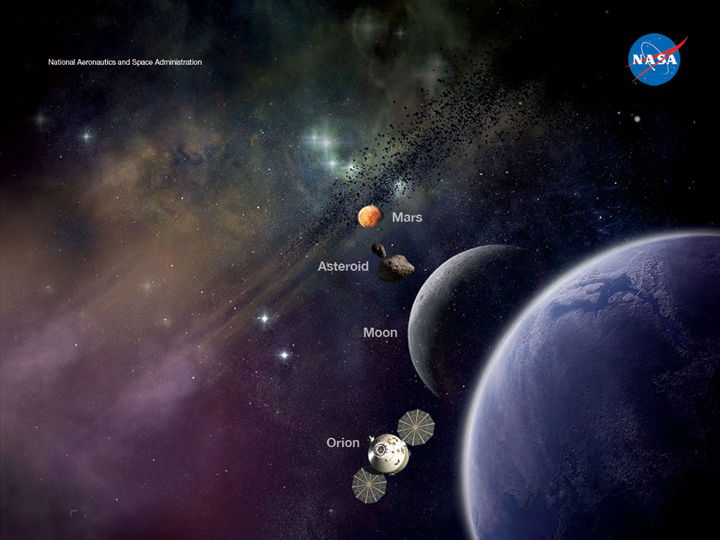TORONTO – The lure of Mars grabbed hold of us long ago. But why are we bothering to go there in the first place?

READ MORE: 5 reasons to get excited about NASA’s Orion launch.
Knowledge
As a curious bunch, we wonder: How did we get here? Is there life elsewhere in our solar system? In our galaxy? In our universe?
Finding out the answers to these questions is an important driving force in the scientific community. Sending humans out into space is just one part of piecing together the puzzle.
Planetary scientist Carolyn Porco, head of the imaging team for the Cassini mission which has been orbiting Saturn since 2004, has been a strong voice for space exploration.
- Donald Trump claims B.C.’s ‘very large faucet’ could help California’s water woes
- Canada must speed up progress to hit its 2030 emissions target: report
- U.S. TikTok ban case pits free speech vs. national security. Which will win?
- A final, tragic text from doomed Titan sub revealed at Coast Guard hearing
Economic

Get breaking National news
According to a study released in 2013 the global space economy is worth $304 billion annually. That means there are a lot of jobs tied into the industry.
Exploring space means further job creation, and eventually the possibility of other returns, Mining minerals on asteroids is a possibility that governments — and even private enterprise — consider.
There are those who believe that the money would be better spent closer to home. But there are problems with that argument.
“I don’t believe for a New York minute the money saved would go to solving the world’s problems,” Porco said. “And the reason is that those problems aren’t all to do with money. They have to do with things that are far more political or mechanical.”
Efficiency
We have sent numerous robots and had fantastic success with planetary missions. But some argue that it would be faster — though certainly not cheaper — to send humans to explore space.
“There are things that humans do that robots can not do, or at least not as efficiently,” said Porco.
“It’s just something that humans are driven to do. And I think we’ll do it bodily and robotically,” Porco said. “They go hand in hand. You can’t do human exploration without first having reconnaissance and in-depth robotic exploration so you know what you’re sending people to.”
What’s next?
“Who knows?” Porco said. “We may… really have people live their lives out there. And I don’t think that that’s just the stuff of science fiction. I think that’s where humans are headed.”
Follow us here at Global News for live, on-the-scene coverage of the Orion launch on Dec. 4.






Comments